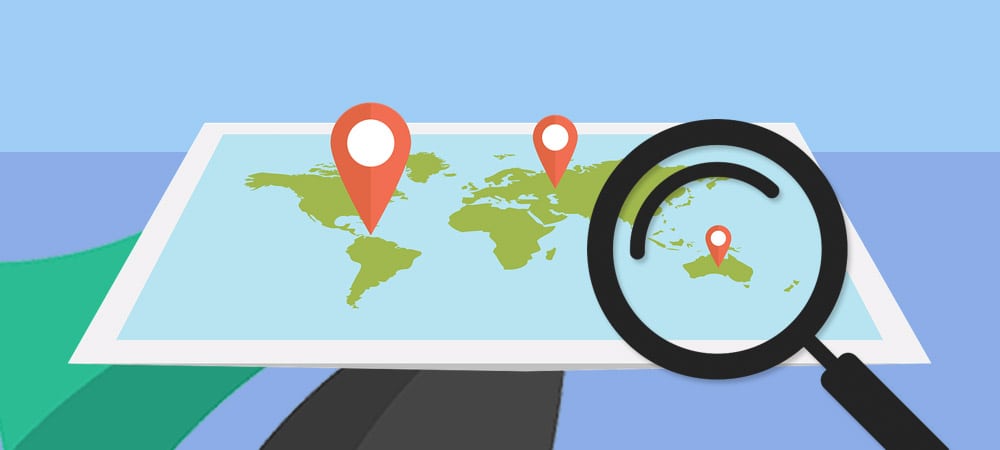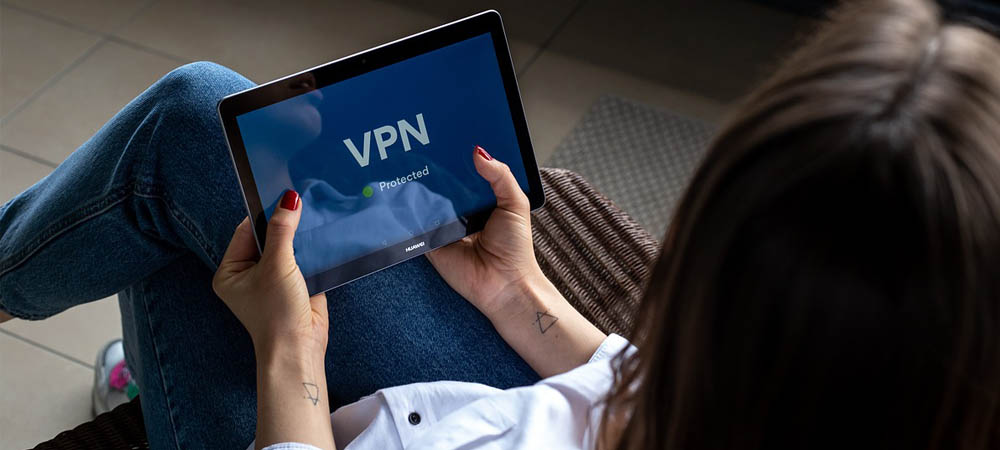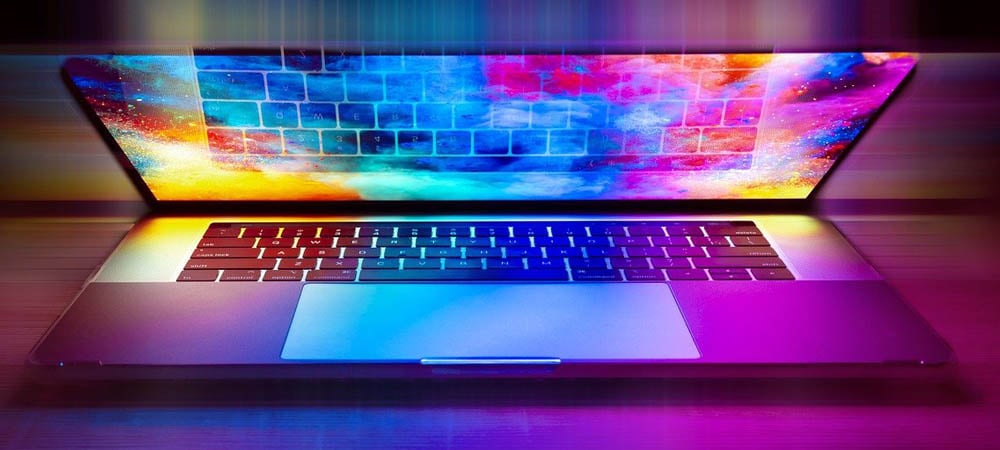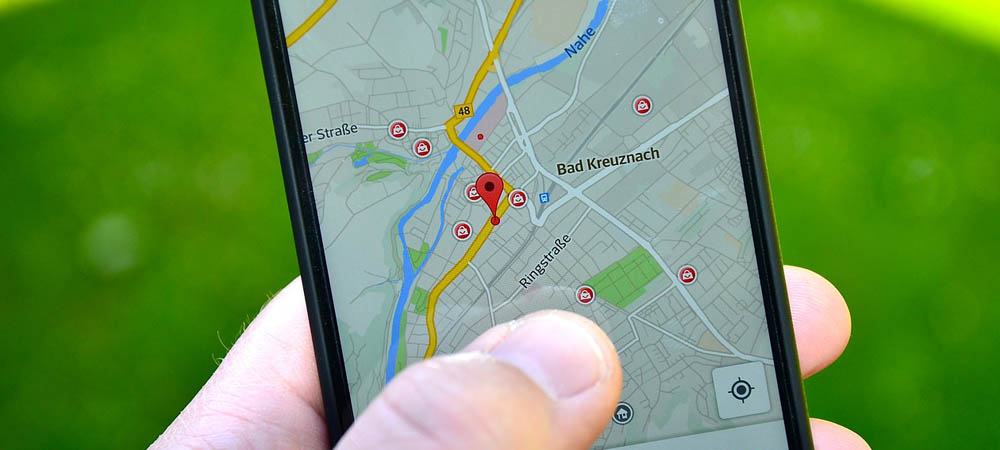
VPNs are a great way to remain anonymous and protect your privacy while browsing the web. But, on the other hand, some people are concerned that they'll be tracked if they use a VPN.
Most virtual private network (VPN) providers claim to provide anonymous or "no-log" VPN services, but this is not always the case.
There are a few ways that someone could potentially track your online activity if you use a virtual private network (VPN). One is whether or not the VPN keeps logs of your online activity.
Consequently, all of the websites you visit, as well as all of the data you send and receive while connected to their service, would be stored by them in an archive format.
This blog post will investigate the possibility of VPN tracking and provide advice on maintaining your anonymity while using a VPN.
IP addresses can be tracked by looking at who has assigned IP addresses to what devices. This process is called IP address assignment.
Each time a device connects to the internet, it is assigned an IP address. The IP address can be used to track the location of the device and the identity of the user. There are also ways to track IP addresses that are not assigned to any devices.
These are called "anonymous" or "unidentified" IP addresses. Some tools can be used to track these IP addresses, but they are not as reliable as tracking devices that are assigned IP addresses. Some VPN providers give their users "static" IP addresses that do not change.
This makes it easier for someone to track a user's activity. Other VPN providers give their users "dynamic" IP addresses that change each time they connect to the internet.
This makes tracking a user's activity more difficult, but it is still possible. In addition, many VPN providers claim to be "anonymous" and "untraceable." However, it is essential to remember that these claims are not always true.
You might be wondering, can a VPN keep you anonymous and stop you from being tracked? The answer is yes and no. A VPN will encrypt your traffic so that your ISP (Internet Service Provider) or anyone else snooping on your connection cannot see what you're doing.
This stops them from tracking which websites you visit and how long you spend on each one. However, they will still be able to see that you are connecting to a VPN server, and they will still be able to see your real IP address (the one assigned by your ISP).
So while a VPN will make it more difficult for someone to track you online, it isn't impossible. In addition, there are ways to increase your anonymity further when using a VPN, such as using a service that provides a static IP address or using a Tor over VPN server.
A static IP address is an IP address that never changes, so it can't be used to track you. And a Tor over VPN server encrypts your traffic with the Tor network before it passes it on to the VPN server, making it even more difficult to trace.

Free VPNs are very tempting. After all, why would you not want to take advantage of a free service that promises to keep you safe and anonymous online? But, unfortunately, the reality is not so rosy. Using a free VPN can be incredibly dangerous and put you at risk of being tracked online.
Here are some of the ways that free VPNs can jeopardize your safety:
They sell your data: One of the most common ways free VPNs make money is by selling your data to third parties. This includes everything from your browsing history to your personal information.
They inject malware: In some cases, free VPNs have been known to inject malware into your device. This is dangerous as it can give hackers access to your device and allow them to steal your personal information or commit malicious activities.
They use weak encryption: Another problem with free VPNs is that they often use weak or outdated encryption methods. This means that your data is not as safe as it could be if you were using a paid VPN service.
There is something called a DNS leak, which is when your computer sends a DNS request to your ISP instead of your VPN's DNS server. This can happen if your VPN connection suddenly drops for some reason.
If this happens, your real IP address could be exposed, and you would no longer be anonymous. Luckily, many VPNs offer what is called a kill-switch, which will prevent your computer from sending DNS requests to your ISP if your VPN connection suddenly drops.
Kill-switches work by monitoring your internet connection, and if it detects that your VPN has disconnected, it will automatically kill your internet connection.
This will prevent you from accidentally revealing your real IP address. Plus, it's just a good safety measure to have in case your VPN connection does drop.
If your VPN uses DNS servers that are not encrypted, your ISP can still see which websites you're visiting. This is called a DNS leak. A VPN that does not have a kill switch will also allow your ISP to see what you're doing if the VPN connection drops for any reason.
Make sure to check if your VPN has a kill switch and DNS leak protection before using it. Many VPNs will have this feature in their software.
If you're looking for a VPN with robust security features and won't leak your DNS, we recommend NordVPN. This is because it has a kill switch and DNS leak protection built into its software.
While a VPN will anonymize your web traffic, it's important to remember that it can't do everything.
For example, it won't hide your physical location or make you anonymous on the internet.
Using a VPN service, your traffic will be routed through its servers. As such, your IP address will change, and the website or online service you're accessing will see the VPN's IP address instead of your own. This is one way to hide your identity and location.
However, if someone is monitoring the traffic passing through the VPN server, they could potentially track your activities.
Some people are concerned that their VPN provider could track them by looking at their port number. However, this is not possible. The port numbers are randomly generated when you connect to a VPN, and they change every time you do so.
As such, your provider would not be able to track your activity simply by looking at your port number, which is better for you!
(DPI) is a technology that allows network administrators to inspect, track and throttle certain types of traffic on their networks. This means that if you are using a VPN to connect to the internet, your ISP can see what you're doing online - even if you're using a pseudonym.
This makes it easy for them to see if you're violating their terms of service and can lead to your internet connection being throttled or even terminated.

There are ways to know if someone is tracking you on the internet. The first step is to understand how they are doing it. There are a few methods of tracking: cookies, web bugs, and beacons. Cookies are small pieces of data that websites store on your computer.
They can track what you do on the website and where you go afterward. Web bugs are tiny images or objects hidden in emails or online documents that allow someone to track your activity.
Beacons work similarly to web bugs but use sound or light instead of images to track you. Another way to tell if you're being tracked is by checking your IP address.
Your IP address is like a digital fingerprint identifying your computer on the internet. If it changes suddenly, that could mean someone is tracking you.
The best way to stay anonymous online is to use a VPN. A VPN (Virtual Private Network) creates a secure, encrypted connection between your computer and the internet. This keeps your identity and activity private and makes it difficult for anyone to track you.
When you visit a website, that site can send what's called a "cookie" to your browser. That cookie is then stored on your device so the site can recognize you when you come back. This is generally harmless.
It's how many websites keep you logged in even after you leave and come back later. But it can be used to track you as well – for example, by building up a profile of which sites you visit and when.
Browser fingerprinting is a relatively new tracking method. It works by collecting data about your browser and using it to create a unique "fingerprint."
There are two main ways that browser fingerprinting can be used to track you, such as creating a profile of your browsing habits or matching your fingerprint to a database of known fingerprints.
This allows companies to track you even if they don't have a profile of your browsing habits.
VPN logs are a necessary evil in the world of online privacy. They can be used to track users and reveal their identities, which is why it's essential to choose a VPN service that doesn't keep logs. Some VPN services keep logs of user activity, while others purge them as soon as they're no longer needed.
Therefore, it's essential to know what kind of VPN service's logging policy is before signing up. Contact customer support and ask them directly about their logging policies if you're not sure.
This depends on the quality of the VPN service. Your traffic will be encrypted and hidden from your ISP using a reputable, well-known provider.
However, if you're using a free or low-quality VPN service, your data may not be secure. In addition, some unscrupulous providers have been known to sell user data to third parties.
It's essential to do your research before selecting a VPN service. Make sure that the provider is reliable and has a strong privacy policy.
Also, be sure to read the terms of service carefully - some providers reserve the right to log user activity or share information with third parties. Finally, it's essential to consider price, speed, bandwidth, and location availability when choosing a VPN service.

Google can track you with a VPN. If you use a Google service, such as Gmail, Drive, or even YouTube, and connect to a server in another country through a VPN, Google may be able to tell that you're using a VPN.
This is because your traffic passes through Google's servers before it reaches the server in another country. When this happens, Google can see your IP address and that you're using a VPN.
While this may not seem like a big deal, it can be if you're trying to stay anonymous online. If you're using a VPN to hide your identity or location, Google knows you're doing so and can keep track of your activities.
This information could be used by government agencies or law enforcement officials or handed over to other companies that may want it. So, can Google track you with VPN? The answer is yes, but there are ways to avoid this.
One way is to use a different email provider than Gmail or an email service that doesn't store your data. You can also use a different browser than Chrome, owned by Google.
Another option is to use a VPN that doesn't keep logs of its users' activities. This will help ensure that your activities remain private and anonymous.
VPNs have become increasingly popular in recent years as more and more people look for ways to protect their online privacy. But can VPNs be tracked by government agencies? The short answer is yes, but it's not as simple as you might think.
VPNs work by routing your internet traffic through an encrypted tunnel. This makes it difficult for anyone to track your online activity or identify your real IP address.
However, VPNs can sometimes slow down your connection speed because VPNs encrypt your traffic. And if a government agency is determined to track you, they may be able to do so by identifying your IP address even if a VPN masks it.
Another thing to consider is that not all VPNs are created equal. For example, some VPNs are more secure than others, and government agencies can easily compromise some.
So before you choose a VPN, it's essential to do your research and make sure you're using a reputable service that will keep your data safe and anonymous.
VPNs are a great way to stay anonymous online, but there are some things you need to know about them. For example, can VPN be tracked by your ISP?
The short answer is yes, but only if you're using a free or poorly-protected VPN. If you use a reputable VPN service like ExpressVPN or NordVPN, your ISP won't track what you do online.
If you're concerned about your privacy, make sure to use a VPN that offers military-grade encryption and doesn't keep logs of your activity.
NordVPN and ExpressVPN are two great options that will keep you safe and anonymous online.
Both of these VPNs offer unique features like 24/7customer support, a strict no-logs policy, and incredibly fast speeds.

You Bet They Can! If you're using a VPN to access your employer's network from outside the office, your boss can probably track your location.
Many employers have policies prohibiting employees from accessing the company network from home or other remote locations. If you violate these policies, your employer may be able to identify the specific location where you accessed the network.
However, if you're using a personal VPN, your employer won't be able to track your location. This is because personal VPNs encrypt your traffic, making it impossible for your employer to determine where you are.
As long as you're using a reputable VPN service, your traffic will be safe and anonymous. So if you're looking to access your employer's network from outside the office, be sure to use a personal VPN rather than a public one.
The FBI has access to many resources, and they have been known to use them to track down criminals. However, it is essential to remember that the FBI is not all-powerful. There are limits to what they can do, and there are ways to stay safe from their tracking methods.
One way to stay safe from FBI tracking is to use a VPN. A VPN encrypts your traffic and makes it impossible for the FBI to track you. Furthermore, a VPN will also hide your IP address, making it even more difficult for the FBI to find you.
Of course, even a VPN cannot make you 100% anonymous. The FBI can still track you if they want to. However, using a VPN make it much more difficult for them, and it is the best way to stay safe from their tracking methods.
Another way to stay safe from FBI tracking is to use Tor. Tor is free software that allows you to browse the internet anonymously. Tor will encrypt your traffic and hide your IP address like a VPN. However, unlike a VPN, Tor is entirely free to use.
It can be hard to tell if someone is using a VPN. However, some telltale signs can help you out. For example, if someone seems to be accessing the internet from an unfamiliar location or their traffic appears to be coming from a different country than where they're located.
They're likely using a VPN. You can also check if their IP address matches the one they've registered with their VPN provider.
Another way to tell if someone is using a VPN is by checking for increased latency or slower download speeds.
When you're using a VPN, your data has to travel further to reach its destination, so you may experience delays when trying to access certain websites or download files. Finally, you can also look for inconsistencies in website behavior.
For example, if you're generally able to watch videos on a website but can't when you're connected to a VPN, then it's likely that the website is detecting that you're using a VPN and has blocked access.
VPNs don't always lock your search history. However, most major VPN providers claim to protect your search history by encrypting all traffic through their servers.
However, there is no way to be entirely sure that this is always the case. For example, some unscrupulous companies may store logs of user activity, including search history, which could then be accessed by government or law enforcement agencies.
To ensure that your search history remains confidential, using a reputable VPN provider with a strong commitment to privacy is essential.
Do your research before choosing a provider, and read reviews from trusted sources. Be sure to look for a provider that offers features like military-grade encryption and a strict no-logs policy.
Private Internet Acess, Nord, and Express VPNs are three of the best, most anonymous VPNs on the market. In addition, all three of these providers offer military-grade encryption, making it virtually impossible for anyone to track your activities online.
In addition, all three of these providers keep no logs of user activity whatsoever. This means that even if authorities were to subpoena their records, there would be nothing to hand over.
Private Internet Acess, in particular, is known for its strict no-logs policy. However, if you want to go to the next level of security, you can also use a Tor browser with your VPN.
This will create an even more secure tunnel for your data and make it virtually impossible for anyone to track you online.
There are several ways to be completely untraceable online. In addition to using a VPN, you can also use the Tor browser, which will encrypt your traffic and bounce it through multiple servers worldwide before sending it on its way.
You can also use a proxy server, which will mask your IP address and make it difficult for anyone to track your activities.
Finally, you can use an encrypted email provider like Protonmail, which will keep all of your communications confidential. When it comes to staying anonymous online, several different tools are at your disposal.
By using a combination of these tools, you can make yourself virtually invisible to hackers, authorities, and anyone else who might be trying to track you down.
So don't be afraid to use VPNs, proxies, and email providers to keep your data safe, and your identity is hidden. With a little effort, you can stay completely anonymous online!
VPNs raise your security and privacy levels by encrypting all of your traffic and routing it through an intermediary server. This means that your ISP cannot see what you are doing online, as all of your traffic is hidden behind the VPN's encryption.
However, not all VPNs are created equal. For example, some providers keep logs of user activity, which means that they could potentially hand over this data to the authorities if they were asked to do so.
Therefore, you need to make sure that you choose a reputable VPN provider that does not keep logs of user activity.
If you do this, you can be confident that your traffic will remain private and anonymous.